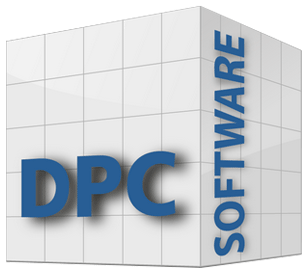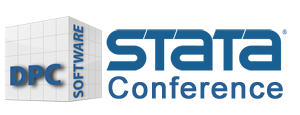German Stata Conference 2025
27. March 2025 (Workshop) and
28. March 2025 (Stata Conference) at University of Hamburg
The 22nd German Stata Conference takes place on 28 March at the University of Hamburg.
There will also be an optional workshop on 27 March.
Do you use Stata for your day-to-day work? Have you developed skills, or would you like to share your results and findings with others in the user community? Do you simply want to meet fellow researchers and StataCorp developers? The Stata Conference is an international event that provides Stata users worldwide with the opportunity to exchange ideas, experiences, and information on new applications of the software. The conference language will be English because of the international nature of the meeting and the participation of non-German guest speakers.
KeyNote Speaker
Professor Frauke Kreuter
Professor Frauke Kreuter is the Professor of Statistics and Data Science in Social Sciences and the Humanities at the Ludwig-Maximilians-University of Munich, Germany; Co-director of the Social Data Science Center (SoDa), and faculty member in the Joint Program in Survey Methodology (JPSM) at the University of Maryland, USA.
Program
Time table
8:30—9:15 — Registration
9:15—9:30 — Welcome
Christian Brzinsky-Fay
9:30—10:30 — Stata in the new data landscape
Frauke Kreuter
10:30—10:45 — Cofee
10:45—11:15 — Into the Multiverse: Conducting and Visualizing Multiverse Analysis in Stata
Daniel Krähmer
11:15—11:45 Pairwise comparisons of means with unequal variances in Stata
Daniel Klein and and Felix Bittmann
11:45—12:15 — _gunitchg: An egen-function for unit conversion
Ulrich Kohler
12:15—13:15 — Lunch Break
13:15—14:30 — TBA (Presentation by Stata Developers)
TBA
14:30—15:00 — StataNow and other licence models
Raoul Dittrich
15:00—15:30 — Cofee
15:30—16:00 — The Oaxaca-Blinder decomposition in Stata: an update
Ben Jann
16:00—16:30 — Running Multiple Instances of Stata from PowerShell
Daniel C. Schneider
16:30—17:30 — Open panel discussion with Stata developers
17:30 — End of meeting
Abstracts
9:30—10:30 Stata in the new data landscape
Frauke Kreuter (LMU München)
Abstract: xxx
10:45—11:15 Into the Multiverse: Conducting and Visualizing Multiverse
Daniel Krähmer (LMU Munich, Department for Sociology)
Abstract: Multiverse analysis is becoming an important tool in the methodological repertoire of social scientists. The idea behind the method—variously referred to as “multiverse analysis,” “multimodel analysis,” “speciAfcation curve analysis,” or “vibration of efects”—is straightforward: since there are many credi- ble ways of formulating an analysis, and any single statistical estimate may sufer from selective reporting, multiverse analysis explores all reasonable speciAfcations, contrasting authors’ preferred estimate with a range of possible estimates. Instead of luring readers into a dark corner of the “garden of forking paths,” multiverse analysis provides a bird’s-eye view of the maze of researcher decisions and the resulting range of defensible Afndings. While multiverse analysis holds signiAfcant promise for quantitative empirical research, it poses conceptual, computational, and practical challenges. This talk provides a primer on implementing multiverse analysis in Stata. It highlights the strengths and limitations of existing multi- verse tools (e.g., mrobust, multivrs) and introduces a new plot type designed to visualize multiverse results efectively. By addressing key challenges in conducting and visualizing multiverse results, the talk seeks to encourage Stata users to adopt multiverse analysis and unlock its potential for robust and transparent research.
11:15—11:45 Pairwise comparisons of means with unequal variances in Stata
Daniel Klein (DZHW) and Felix Bittman (LIFBI)
Researchers often want to mitigate the increased risk of type I errors that arises from multiple pairwise comparisons of means. Stata provides seven methods to adjust the corresponding conAfdence intervals and p-values. However, four of these meth- ods assume equal sample sizes, variances, or both, and none explicitly addresses unequal variances, which might pose limitations on applied research. In this presentation, we briefy review how the implemented methods modify the signiAfcance level or obtain crit- ical values from alternative distributions to adjust for multiple comparisons. We then discuss three methods that explicitly account for unequal variances by making additional adjustments to standard errors and degrees of freedom. Finally, we (re-)introduce the pwmc command in Stata, which implements these three methods, and compare their performance using a Monte Carlo simulation.
11:45—12:15 _gunitchg: An egen-function for unit conversion
Ulrich Kohler (University of Potsdam, Faculty for Economic and Social Sciences)
Abstract: This talk presents an egen-function to convert units of measurements for length, areas, volumes, angles, masses, temperatures and currency. The function allows both, to convert many non-SI units (e.g., inch, furlong, sunradius) to SI-units (from pico to peta) or directly from a non-SI unit to another non-SI unit. Currencies are converted by calling the Eurpean Central Bank through an API. The conversion rate can be selected on a daily base or by an average of a speciAfed period. German users may be relived to realize that the function alows converting areas also into units of “Saarland”.
13:15—14:30 Presentation of Stata developers
TBA (StataCorp)
Abstract: Topic of the talk will be published shortly before the conference
14:30—15:00 StataNow and other licence models
Raoul Dittrich (DPC Software GmbH)
Abstract The Stata license model is gradually changing from perpetual licenses to a pay-as-you-go model called StataNow. Whilst this gives researchers and users of Stata the advantage of having always access to the latest features of the software, the pay- as-you-go model requires diferent planning and budgeting for software. Many diferent options to license Stata exist, depending on edition, usage, organisation and many other factors. This talk makes suggestions for Afnding a license option that meets the functional requirements, including multi-year models and covering of EUR/USD fuctuations.
15:30—16:00 The Oaxaca-Blinder decomposition in Stata: an update
Ben Jann (University of Bern)
Abstract In 2008, I published the Stata command -oaxaca-, which implements the popular Oaxaca-Blinder (OB) decomposition technique. This technique is used to analyze diferences in outcomes between groups, such as the wage gap by gender or race. Over the years, both the functionality of Stata and the literature on decomposition methods have evolved, so that an update of the -oaxaca- command is now long overdue. In this talk I will present a revised version of -oaxaca- that uses modern Stata features such as factor-variable notation and supports additional decomposition variants that have been proposed in the literature (e.g., reweighted decompositions or decompositions based on recentered infuence functions)
16;00—16:30 Running Multiple Instances of Stata from PowerShell
Daniel C. Schneider, Max Planck Institute for Demographic Research, Rostock, Germany
Abstract Spreading computationally intensive tasks over multiple instances of Stata can be an easy and efective way to reduce time demands, complementing StataCorp’s automatic distribution of computations across cores in MP versions of Stata. Several packages that aide with multi-instance runs are already available: parallel (Vega Yon / Quistorf 2019), multishell (Ditzen 2018), and qsub (Sayers 2017). Each of them is briefy introduced in the presentation. An additional approach will be presented that is based on a new PowerShell command Start-StataMultiInstance (recommended PowerShell alias: multistata). PowerShell is the default shell application on Windows computers but can also be installed on other operating systems. The strengths and distinguishing features of all four approaches will be discussed, along with the suitability of diferent programming strategies according to the type of computational task to be split up.
O Ditzen, Jan (2018).
multishell – Running Stata Parallel Efciently.
Presented at the UK Stata Conference, London, September 7, 2018. Available at https: //www.stata.com/meeting/uk18/slides/uk18_Ditzen.pdf.
O Vega Yon, George G., and Brian Quistorf (2019).
parallel: A Command for Parallel Computing.
The Stata Journal 19 (3): 667—84. Available at: https://doi.org/ 10.1177/1536867X19874242.
O Sayers, Adrian (2017).
qsub: Stata module to emulate a cluster environment using your desktop PC. Stata module available at the Statistical Software Components (SSC) archive.
16:30–17:30 Open panel discussion with Stata developers
Abstract Contribute to the Stata community by sharing your feedback with StataCorp developers. From feature improvements to bug fixes and new ways to analyse data, we want to hear how Stata can be made better for you.
Addresses
Address for Stata Workshop (27. March 2025)
University of Hamburg
Von-Melle-Park 9
20146 Hamburg
Address for Stata Conference (28. March 2025)
University of Hamburg
Albrecht-Mendelssohn-Bartholdy-Hörsaal (Hörsaal K),
Edmund-Siemers-Allee 1
20146 Hamburg
Organizers
Johannes Giesecke
Humboldt University Berlin
johannes.giesecke@hu-berlin.de
Ulrich Kohler
University of Potsdam
ulrich.kohler@uni-potsdam.de
Christian Brzinsky-Fay
University of Hamburg
christian.brzinsky-fay@uni-hamburg.de
Logistics Organizer
DPC Software GmbH (dpc-software.de), the distributor of Stata in several countries, including Germany, the Netherlands, Austria, the Czech Republic, and Hungary.
You can enroll by contacting Tim Prenzel by email or by writing or phoning.
Tim Prenzel
DPC Software GmbH
Phone: +49-212-224716 -15
E-Mail: Tim.Prenzel@dpc-software.de

Registration fee
Included will be the lunch, coffee and soft drinks in the morning and afternoon break and also pens and books at the Live Event.
| Meeting fees (all prices are incl. VAT) | Price |
|---|---|
| Meeting only: Professionals | 45,00€ |
| Meeting only: Students | 20,00€ |
| Workshop only | 75,00€ |
| Workshop only: Students | 35,00€ |
| Workshop + Meeting | 100.00€ |
| Workshop + Meeting: Students | 50,00€ |
Registration for the 2025 German Stata Conference (binding)
STEP 1: REGISTRATION
STEP 2: PAYMENT
Pay by PayPal or Bank transfer
Pay by PayPal
Pay by Bank transfer
Pay till 20. March 2025!
Konto Inhaber: DPC Software GmbH
HypoVereinsbank
Konto Nummer: 237 689 17
Bankleitzahl: 720 200 70
IBAN: DE26 7202 0070 0023 7689 17
BIC: HYVEDEMM408
Use as Usage: Stata Conference 2025
Kontakt
Tim Prenzel
Phone:+49-212-224716 -15
E-Mail: tim.prenzel@dpc-software.de
